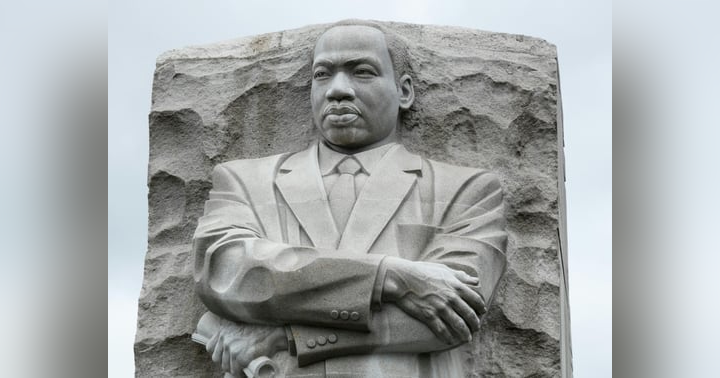Was Jesus a Black Man?

The reason I ask the question is because of Revelation 1:12-15. It reads, “Then I (the apostle John) turned to see the voice that was speaking with me. And having turned I saw seven golden lamp-stands; and in the middle of the lamp-stands, I saw one like the Son of Man, clothed in a robe reaching to the feet, and girded across His chest with a golden sash. His head and His hair were white like wool, like snow; and His eyes were like a flame of fire. His feet were like burnished bronze, when it has been made to glow in a furnace, and His voice the sound of many waters.”
A similar description appears in the book of Daniel 10:4-6,
“On the twenty-fourth day of the first month, as I was on the bank of the great river Hiddekel (which is the Tigris), I raised my eyes and looked, and behold, there was a certain man dressed in linen, whose loins were girded with a belt of pure gold of Uphaz. His body was also beryl [1], his face had the appearance of lighting, his eyes were like flaming torches, his arms, and feet like the gleam of burnished bronze, and the sound of his words was the noise of a multitude.”
Scholars believe what Daniel saw was what is called a Christophany; a pre-incarnate appearance of Jesus Christ.
Black activists like Israelite United in Christ and the Black Israelites and others have concluded based on two descriptions; hair like wool, and feet like bronze that Jesus was black. That gives them pride that the Messiah is a man of color. What I find interesting is that the other descriptions said His head and His hair were white like wool. If Jesus were black based on these descriptions, why would you describe a black man with a white face or head? Remember this is a vision of the resurrected Christ. In another vision, John sees Christ as a lamb that was slain. Here Jesus is described with seven horns and seven eyes. So based on the vision, Jesus is some bizarre looking beast if one takes the vision literally. Are we to take this description literally, or are we take it symbolically (Revelation 5:6)?
This is a classic case of eisegesis. This is when someone manipulates a text of scripture to make it say what they want it to say. In other words, one reads into the text what they want with their presuppositions and biases. This is the opposite of exegesis, interpreting the text by its original context.
The vision that John and Daniel saw was Jesus coming in His glory as judge. His face and hair appeared white because His face shined like the sun. Just because Revelation 1:14 says His hair was white like wool does not mean his hair was woolly or coarse which is often the texture of black people's hair.
So, I guess for many non-white people if Jesus was white, He would be rejected based on the color of His skin. That is what we call racism today. At the end of the day Jesus’ skin color is not relevant. He is the only Savior of the world. Despite His ethnicity, all must believe on Him for eternal life (John 14:6).
Finally, here is the wisdom of the Lord in Exodus 20:4, You shall not make for yourself a carved image, or any likeness of anything that is in heaven above, or that is in the earth beneath, or that is in the water under the earth.
The Point being is that when one makes any image of what Christ supposedly looks like, they become enamored with that image. It becomes their idol – whether they make Him black or white.
This matter is discussed in the movie Malcolm X played by Denzel Washington. Denzel portraying Malcolm, is having a debate with the chaplain. The chaplain is claiming God/Jesus is white based on the portraits and statues we see all over the world. Denzel-Malcolm is arguing that Jesus is a man of color based on Revelation 1:14-15, and where Jesus was born and lived - a region where people have dark skin; what we call the middle east, Israel. While I do not agree that one can use Revelation 1:14-15 as a proof text to determine Jesus' skin tone, Denzel wins the debate in my opinion.









